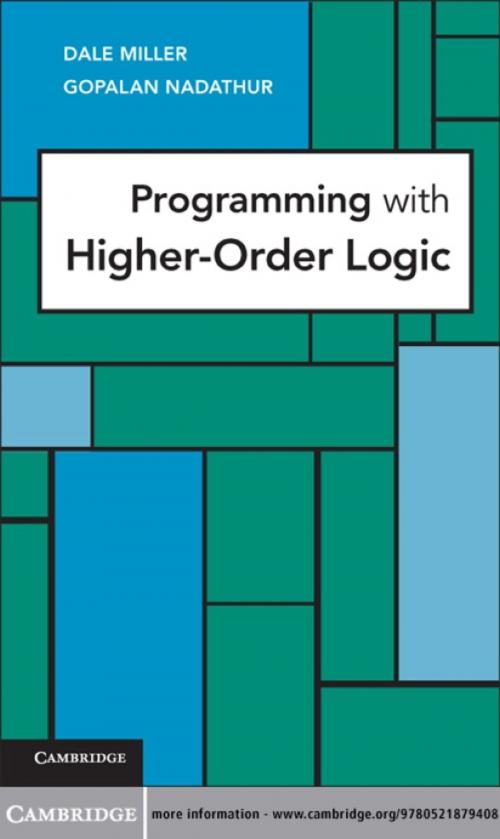Programming with Higher-Order Logic
Nonfiction, Computers, Advanced Computing, Computer Science, Programming, Programming Languages, General Computing| Author: | Dale Miller, Gopalan Nadathur | ISBN: | 9781139506298 |
| Publisher: | Cambridge University Press | Publication: | June 11, 2012 |
| Imprint: | Cambridge University Press | Language: | English |
| Author: | Dale Miller, Gopalan Nadathur |
| ISBN: | 9781139506298 |
| Publisher: | Cambridge University Press |
| Publication: | June 11, 2012 |
| Imprint: | Cambridge University Press |
| Language: | English |
Formal systems that describe computations over syntactic structures occur frequently in computer science. Logic programming provides a natural framework for encoding and animating such systems. However, these systems often embody variable binding, a notion that must be treated carefully at a computational level. This book aims to show that a programming language based on a simply typed version of higher-order logic provides an elegant, declarative means for providing such a treatment. Three broad topics are covered in pursuit of this goal. First, a proof-theoretic framework that supports a general view of logic programming is identified. Second, an actual language called λProlog is developed by applying this view to higher-order logic. Finally, a methodology for programming with specifications is exposed by showing how several computations over formal objects such as logical formulas, functional programs, and λ-terms and π-calculus expressions can be encoded in λProlog.
Formal systems that describe computations over syntactic structures occur frequently in computer science. Logic programming provides a natural framework for encoding and animating such systems. However, these systems often embody variable binding, a notion that must be treated carefully at a computational level. This book aims to show that a programming language based on a simply typed version of higher-order logic provides an elegant, declarative means for providing such a treatment. Three broad topics are covered in pursuit of this goal. First, a proof-theoretic framework that supports a general view of logic programming is identified. Second, an actual language called λProlog is developed by applying this view to higher-order logic. Finally, a methodology for programming with specifications is exposed by showing how several computations over formal objects such as logical formulas, functional programs, and λ-terms and π-calculus expressions can be encoded in λProlog.















